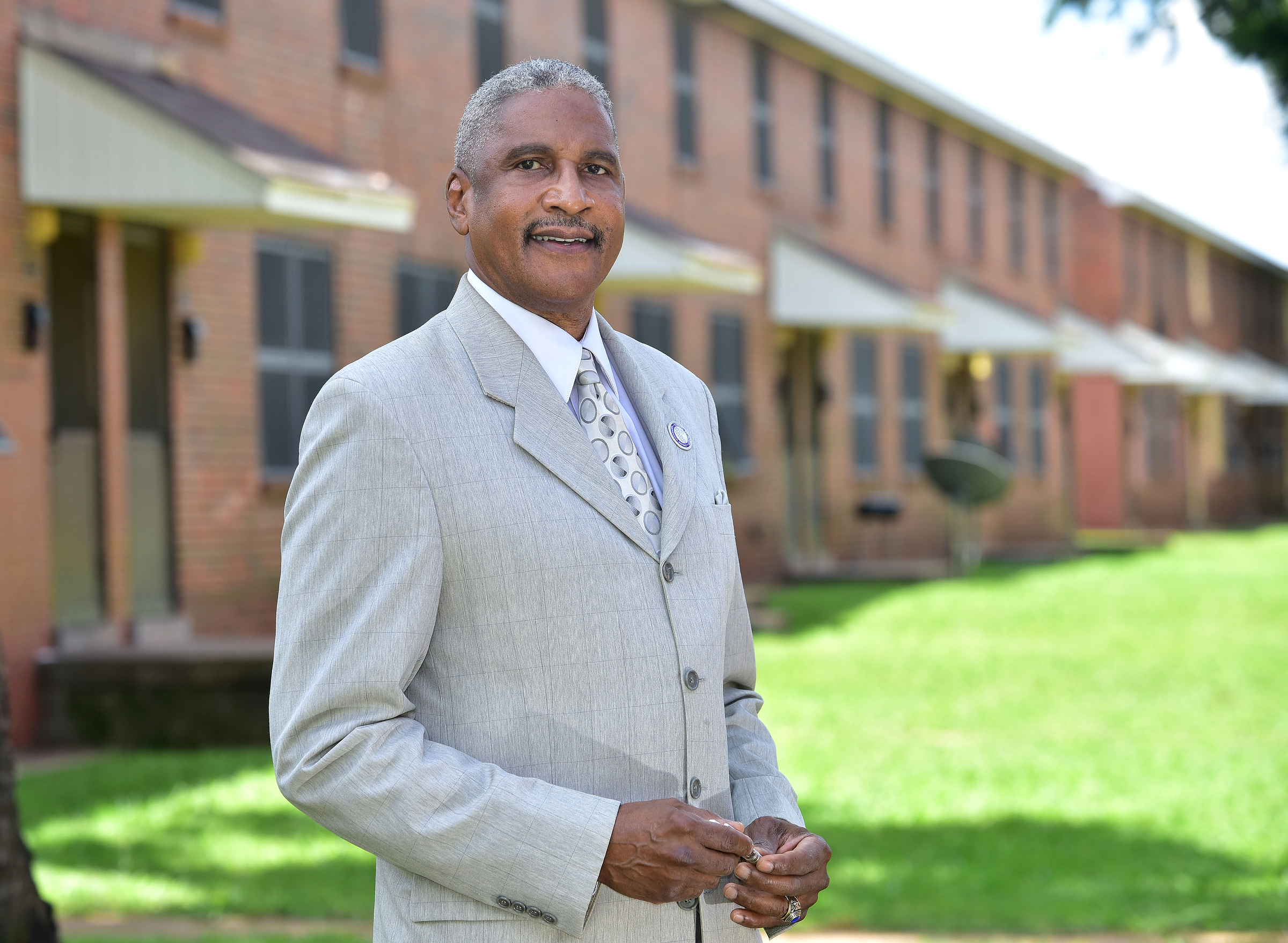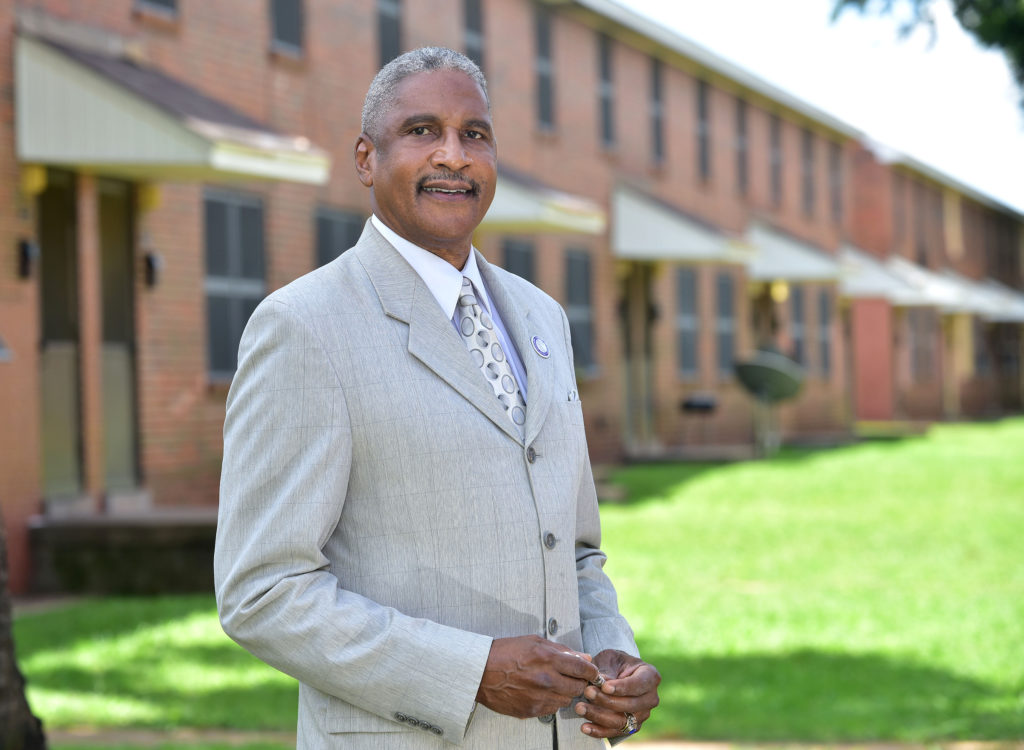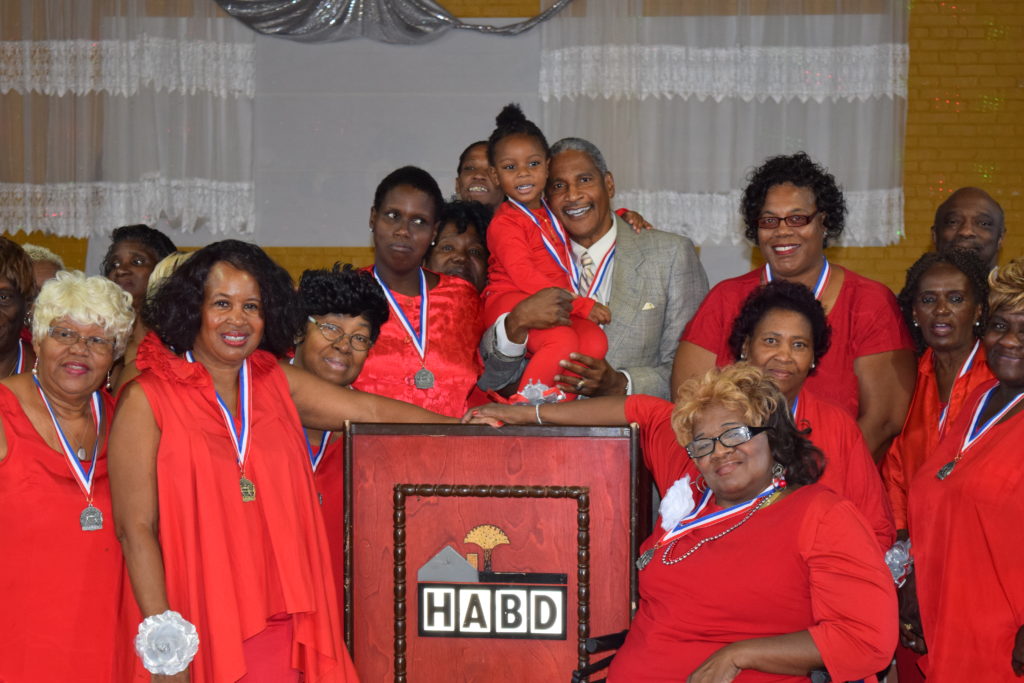
By Ariel Worthy
The Birmingham Times

Michael Lundy remembers the day his family moved into public housing. He was 11 years old.
“My dad got my two brothers me, and we looked around,” Lundy recalled. “He said, ‘You see this place? It’s clean, isn’t it?’ We said, ‘Yes sir.’ He said ‘It’s going to be just like this when we leave. We’re not going to be here too long.’”
Lundy, who is from Cincinnati, Ohio, said his family moved into public housing with the mentality that their time there was only temporary. Six years later his parents bought their own single-family home.
“I had more responsibilities with taking care of the lawns, helping my mom in the garden, and shoveling snow, but I also had a sense of ownership,” Lundy said. “It changed my perspective on life.”
Many of the people in Lundy’s new neighborhood gave him a larger view of the world.
“I met new friends who lived in the community,” he said. “Many of their parents had their own businesses, so it gave me a larger view of the world and showed me that one day I could get my own business.”
Encouraging Others
Lundy, president/CEO of the Housing Authority of the Birmingham District (HABD), says his experiences have motivated him to encourage public housing residents to seek independence: “I tell people when they’re moving in that it’s temporary, and we’re going to work with them.”
Lundy said he did not realize the impact that living in public housing had on him until he got older. After college—he earned a Bachelor of Arts in Psychology from Knoxville College in Tennessee, a Master of Public Administration from Xavier University in Ohio, as well as a public housing management certification—he became a social worker for the Cincinnati Housing Authority.
“I worked with many families that had kids with the same aspirations I had,” he remembered. “It’s important to give them the exposure to the world, to give them different outcomes.”
New Plans
Since coming on board at the HABD in February, Lundy has implemented new plans to make public housing in Birmingham safe, while moving residents toward independence. One of the first: redevelop Loveman Village in the Titusville neighborhood. After receiving $17 million in low-income tax credits this summer from the Alabama Housing Finance Authority, 220 units will be replaced on-site, another 220 units will be developed off-site, and 120 units will be going up on Sydney Drive near Oxmoor Road.
“We’re looking for another site for another 100 units,” Lundy said. “When we’re done, we’ll have around 450 units.”
Another plan is the redevelopment of the 455-unit Southtown Court in Southside. The project, which will take between three and four years to complete, will be a mixed-income development, Lundy said. In addition, workforce development will also be offered via soft-skills training programs designed to put residents on the path to job opportunities.
“We’re going to have an inclusive, comprehensive redevelopment site,” Lundy said. “We’re no longer going to have a concentration of public housing units all in one area.”
Affordable housing, market-rate housing, commercial space, and recreational space all will be in the new area, he said.
Lundy, who previously served as president/CEO of the Huntsville Housing Authority, said the HABD is looking to redevelop six or seven housing sites within the next six years.
Making a Difference
Collegeville Center Neighborhood President Michael Carroll said he thinks new buildings would be “great.”
“We’ve been long overdue for it, and I’m glad he’s trying to make a change and difference,” said Carroll, 52. “I’m glad he’s actually rebuilding instead of just remodeling.”
Carroll, who has been living in Collegeville Center for 20 years, said he hopes the new buildings will prompt residents to take care of them.
“You can’t ask someone to respect anything that isn’t respectable,” he said.
According to Lundy, “The units are going to look like private-sector apartments. It will be difficult to distinguish the public housing from the market housing.”

Breaking the Cycle
The new sites, which are part of the HABD’s Up and Out program, come with a deal for residents who sign leases.
“Part of the criteria for going into one of the new units is that the residents must work,” said Lundy, adding that these programs are for “able-bodied adults, not necessarily the disabled and elderly.”
“Another part of the criteria is that residents sign leases stating that they will live there for only five years,” he said.
During that five-year period, the HABD will work with residents to help them move into their own homes.
“We’re breaking the cycle of generational poverty and generational public housing,” Lundy said. “Public housing was designed as a stepping stone toward something better and greater. It was not designed as a last resort.”
Carroll said he supports Up and Out, but he knows it won’t be for everyone living in the communities.
“You have to remember who we’re talking about. We’re talking about slow-moving people who are used to one thing,” Carroll said. “Grandma lives here. Mama lives here. They don’t want their cycle to change.”
Community Presence
Carroll said he likes Lundy in the new position because he is able to communicate with him.
“Anytime I call and have a question, I actually get an answer,” Carroll said. “Even if it’s his secretary, somebody actually answers—and he’ll call back.”
Another way Lundy shows his interest in the community, according to Carroll: he actually shows up in the areas.
“[Lundy] comes out himself whenever there is an issue,” Carroll said. “We’re not used to having anybody come out.”




